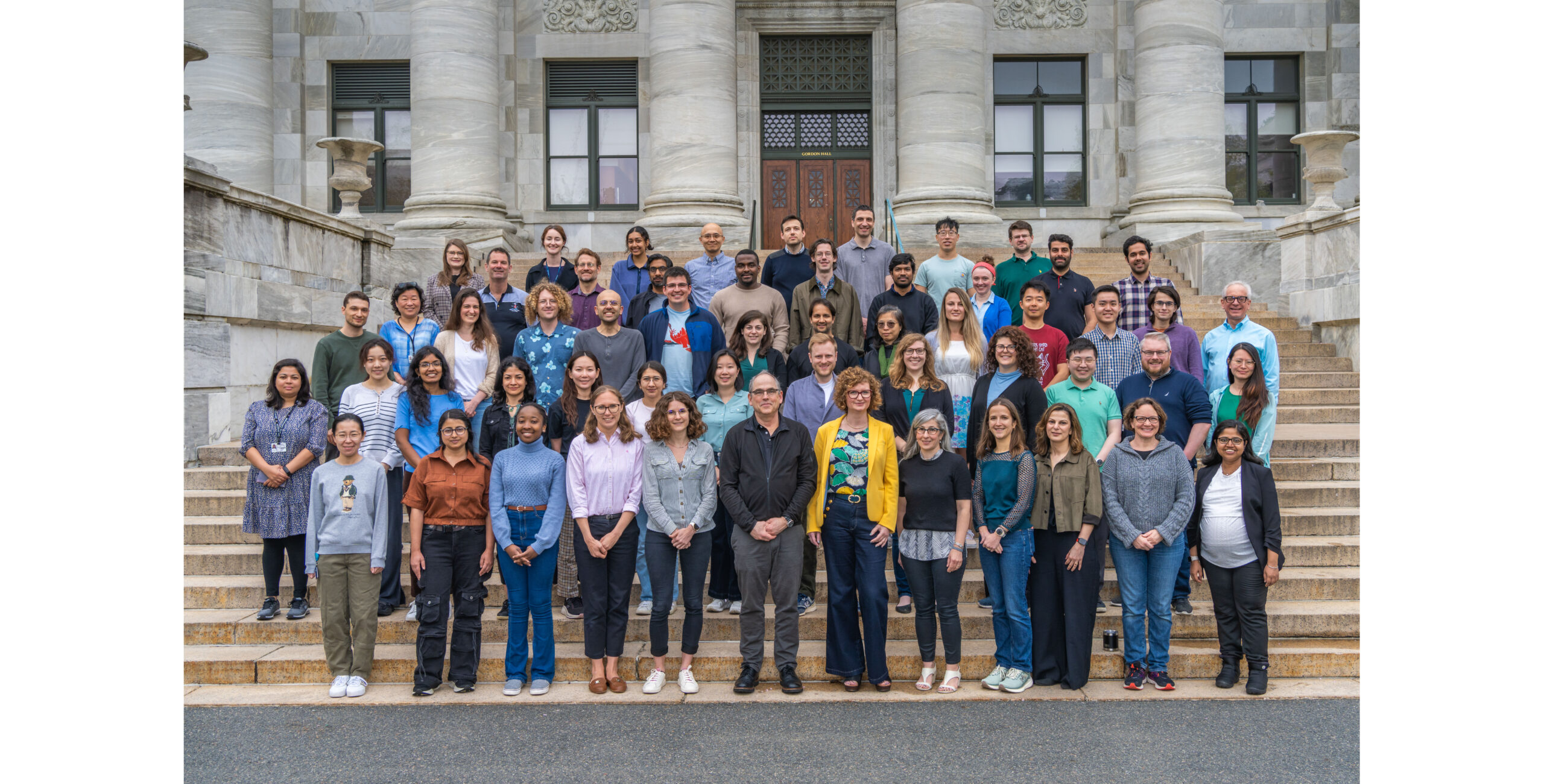About the Lab
The Laboratory of Systems Pharmacology (LSP) at Harvard Medical School studies the fundamental science underlying the invention of new therapeutics and diagnostics and their testing in humans via clinical trials.
Although drug discovery and development is technically sophisticated, it often does not fully incorporate the contemporary understanding of biological networks or leverage powerful machine learning methods. Our projects aim to address this gap. They span broad topics, from leveraging machine-learning to identify disease biomarkers, predicting drug-target interaction, investigating the origins of adaptive and acquired drug resistance in solid cancers (and how to prevent it), inventing small molecule drugs for chronic and inflammatory pain, repurposing existing drugs to treat neurodegenerative diseases, and improving the design and interpretation of clinical trials.
To achieve these ambitious goals, we harness the power of team science. Our projects involve collaborations among individuals with diverse backgrounds and expertise, including medical doctors, pathologists, software engineers, statisticians, librarians, bench scientists, and more. Our faculty, staff, fellows, and students have backgrounds in molecular, cell, and systems biology, engineering, computer science, and medicine.
Our teams apply a systems biology framework, which considers how regulatory networks function normally, and how they are disrupted. We develop and apply diverse methods to quantify biological phenomena, including live-cell microscopy, highly-multiplexed imaging, spatial transcriptomics, proteomics, and functional genomics. We combine these experimental measurements with mathematical modeling approaches such as dynamical systems analysis, machine learning, and artificial intelligence to predict biological outcomes. See our Research page for more information about specific projects.
Organization and Culture
The LSP faculty is made up of two communities: 24 professorial rank group heads and the lab’s platform directors and senior scientific staff. The Assistant, Associate and Full Professors in the LSP have their primary appointments in ten different institutions including Harvard, Harvard-affiliated hospitals, Tufts, MIT and Northeastern Universities. Typically, a subset of their lab is based in LSP. Ten senior scientific staff in the LSP direct the lab’s technology platforms and also conduct original research. Many of them are PIs in their own right with sponsored research grants; they actively shape LSP culture and priorities.
HiTS and the LSP were made possible by two capital grants from the Mass Life Sciences Center and by major grants from the NIH, NCI and DARPA. The LSP operates a newly renovated 1,200 m2 (13,000 ft2) laboratory on the historic HMS Quadrangle. The lab is organized around a series of technology platforms that develop and apply innovative and emerging technologies to specific research projects. Each technology platform is headed by one or more highly experienced staff scientists/PIs who both develop a specific set of technologies and support their application in basic and translational research. Key platform technologies include protein mass spectrometry, microscopy, modeling and data science, tissue imaging, software engineering, screening technologies, and pre-clinical pharmacology. Whenever possible, our technology platforms collaborate with Harvard’s outstanding cores such as the ICCB Screening Facilities.
Students and postdocs are key drivers of innovation in the LSP and they play critical roles in all aspects of the lab’s research. Most students work in small teams of 2-3 people spanning laboratory experiments, computational modeling, and omics data in collaboration with physician-scientists. Many opportunities exist to pursue research with real-world and clinical impact as well as basic science with long-term outcomes. Students and fellows in the LSP need not have a background in computational biology, but interest in quantitative approaches is a definite plus. Graduates of the lab have gone on to successful careers as assistant professors and group leaders in universities across the US, Europe and Asia. Others have started or joined venture companies and yet others have joined mature pharmaceutical and biotech companies or entered government service. The LSP and its faculty are equally supportive of all of these career choices.
Faculty from institutions based in Eastern Massachusetts interested in joining the LSP should contact Executive Director Laura Maliszewski. Postdocs interested in fellowships in the lab, or in positions as research scientists should check our jobs page or contact Director of Research Cat Luria. Students should contact individual LSP faculty but are also welcome to learn more about the lab from Head of LSP, Peter Sorger. See our Contact page for more information.


